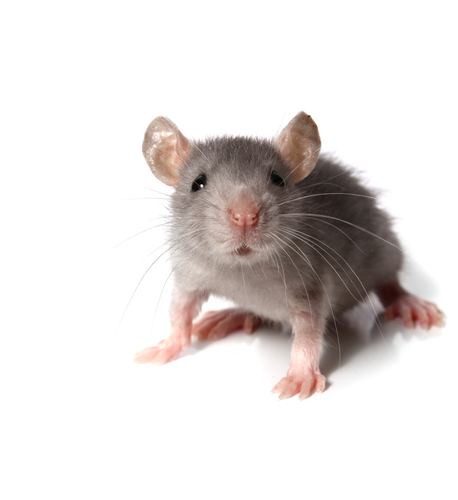There are few constants in this world. One exception, however, is the passing of day to night, which has gone on without fail since life first emerged on Earth. Early life quickly learned to anticipate changes associated with light and dark. This ability to tell time – to peer into the immediate future – was an enormous advantage. As a result, from bacteria to buttercups, many organisms have evolved biological clocks in sync with the spinning of the globe.
Humans are no different. Our light-driven clock is linked to the central nervous system, and orchestrates the production of a number of proteins that influence our behavior. This internal clock is coupled to a separate clock in the liver, which governs metabolism during sleep and wakefulness. When people are jet-lagged, or start working nights, this disruption to sleep can lead to weight gain due to a decoupling of these two clocks (McHill et al., 2014).
The function of our internal timepiece does not stop with our own bodies. The ticking of our clocks also depends on the microbes that live in and on us. The genes bound up in the complex assemblage of single-celled organisms living in our nooks and crannies outnumber the genes in our own genome by a hundred fold. We have come to rely on this reservoir of alien genes to help us thwart disease, digest our food, and carry out many other day-to-day tasks that maintain our health and well being.
Recently, scientists at the Weizmann Institute found that the gut microbiome in mammals (like us) reconfigures itself on a day-night cycle (Thaiss et al., 2014). They found that the lack of a good night’s sleep upset this daily cycle of gut microbes. Thaiss then transplanted the muddled microbiome from sleep-deprived mice into healthy mice on a normal sleep schedule, which upset the internal clock and led to weight-gain. Thus, jet-lag was transmissible via the microbiome. In a follow-up study, another group of researchers at the Salk Institute found that diet-induced obesity had an equivalent effect on biological clock function as sleep disruption (Zarrinpar et al., 2014). In both sets of mice – those deprived of sleep or those fed on a high-fat diet – the outcome was the same: the clocks in the nervous system and the liver decoupled and the mice got fat.
Last week, in the journal Cell Host & Microbe, Vanessa Leone and Eugene Chang, at the University of Chicago, identified how a healthy gut microbiome interacts with the mammalian clock (Leone et al., 2015). They found that the daily cycling of a particular set of bacteria was disrupted by a high-fat diet, along with the cycling of small molecules known as short-chain fatty acids (SCFAs). Mammals cannot make SCFAs, and must rely on their gut microbiota to produce them. Leone and her colleagues found that a particular SCFA – butyrate – rose and fell in abundance over the course of the day, along with the microbes that produced it. She then injected butyrate into sick mice with dysfunctional clocks – at the correct time of day – and brought them back to health. These findings display how intimately our metabolism is connected to our resident microbes and may eventually lead to new microbiome-related treatments for people with metabolic disorders associated with obesity (e.g., diabetes).
We are just starting to understand how intertwined we are with our microbiota. Unfortunately, we have not been gracious hosts. We have altered our diets and lifestyles dramatically in recent millennia. We have also introduced broad-spectrum antibiotics to treat disease. These advances have saved countless lives and extended our lifespans, but have eroded our microbial partnerships. We can see the fallout in the prevalence of autoimmune diseases and obesity in industrialized nations. We must recon with the fact that our bodies are ecosystems, just like a rainforest or a coral reef. Medicine in the 21st century should take a more ecological approach to healthcare, where disease is not always caused by a single bad actor, but by an imbalance in our internal ecosystem.
